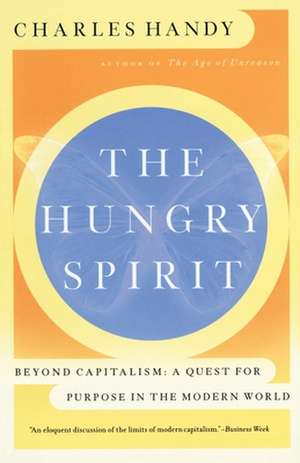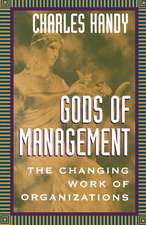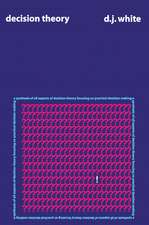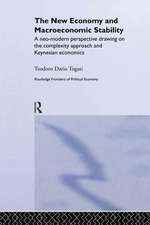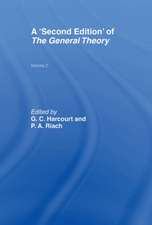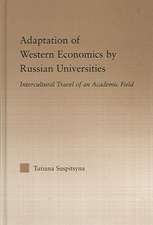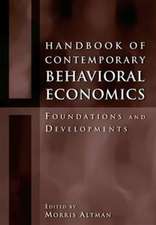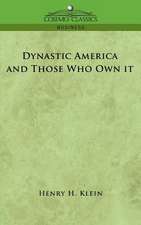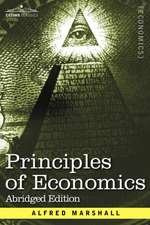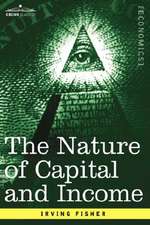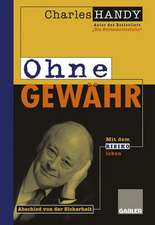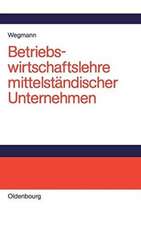The Hungry Spirit
Autor Charles B. Handyen Limba Engleză Paperback – 31 dec 1998
Many of us, Charles Handy asserts, are confused and frustrated by the fast-paced, prosperous world we have created for ourselves. We are puzzled by the consequences of capitalism, whose material benefits and comforts we enjoy every day, but which also divides rich from poor, consumes so much of our energies, and does not always lead to a more contented life. In a world that is super-efficient, highly productive, and too often soulless, how do we quench our spiritual "hunger"?
In The Hungry Spirit, one of the most visionary business thinkers of our age offers a powerful argument for reexamining the role of work in our lives and discovering what we are truly meant to do and to be. Calling on individuals and organizations to find purpose in the journey we take rather than focusing on money and profits, which are simply the means to keep us going, Handy shows how we can all better ourselves and our companies while also contributing to a decent society.
As an oil executive, world-renowned economist, consultant, and professor at the London Business School, Handy himself was once no stranger to the trappings and fortunes of capitalism. But several years ago, Handy realized that he, like many of us, had placed too much significance on job titles and career success to the exclusion of his family, friends, and, especially, the fulfillment of his need to become a complete person, not just a worker slaving away in corporate machinery. He set about looking for what he calls his "white stone"--a symbol of the higher self that represents our true destiny, what you can become when you don't let titles and money and societal pressures get in the way.
Just as Handy urges all of us to seek our "white stone" and take greater responsibility for shaping our lives, he also entreats companies and organizations to push themselves to new heights by sticking to a clear-cut purpose. Companies, like individuals, can only grow if they embrace risk and break rules and attract people looking to turn dreams and new ideas into businesses that consumers and investors are excited about. Rather than trying to rally coworkers around a quarterly profit goal, companies must treat employees as citizens, as well as behaving as corporate citizens within the wider community. Handy calls for corporations to take a greater role in upholding the moral structure of society and to use their power to distribute knowledge and wealth to those who need the opportunity to develop--which will one day benefit us all.
A rare combination of engaging storytelling, philosophical exploration, and down-to-earth wisdom, The Hungry Spirit offers readers a powerful tonic for the profit-driven lives we've prescribed for ourselves and an inspiring message of hope.
From the Hardcover edition.
| Toate formatele și edițiile | Preț | Express |
|---|---|---|
| Paperback (2) | 100.00 lei 6-8 săpt. | |
| BROADWAY BOOKS – 31 dec 1998 | 113.87 lei 3-5 săpt. | |
| Arrow – 22 ian 1999 | 100.00 lei 6-8 săpt. |
Preț: 113.87 lei
Nou
Puncte Express: 171
Preț estimativ în valută:
21.80€ • 23.68$ • 18.32£
21.80€ • 23.68$ • 18.32£
Carte disponibilă
Livrare economică 31 martie-14 aprilie
Preluare comenzi: 021 569.72.76
Specificații
ISBN-13: 9780767901888
ISBN-10: 0767901886
Pagini: 288
Dimensiuni: 142 x 217 x 18 mm
Greutate: 0.39 kg
Editura: BROADWAY BOOKS
ISBN-10: 0767901886
Pagini: 288
Dimensiuni: 142 x 217 x 18 mm
Greutate: 0.39 kg
Editura: BROADWAY BOOKS
Notă biografică
Widely recognized as one of Britain's top-tier management writers, Charles Handy is the author of six highly acclaimed business books, including The Age of Unreason, The Age of Paradox, and Beyond Certainty. Educated at Oxford and MIT, he has been an executive of the Shell Oil Company and a professor at the London Business School, where he was one of the early faculty. He and his wife divide their time among London and Norfolk, England, and Tuscany, Italy.
From the Hardcover edition.
From the Hardcover edition.
Extras
"Get a life" is not just a catchy phrase. It is, says Timothy Gorringe, the theologian, the only ethical imperative. The British journalist Michael Bywater has described his feelings after a friend had a liver transplant operation. He wondered, he said, what it felt like to have someone else's part inside of you. What sort of life had to end before his friend could start to live again? Was the donor a man? A woman? How old? What did they do? Did they like croissants for breakfast, enjoy making love, see their life as a failure, hope for the future, wish for the end? Did they polish the car on the day it killed them in the accident? Had they ever written a book, planted a tree, wept over a Brahms symphony, had a religious vision, eaten snails, held a newborn baby, licked their lover all over, stolen money, owned a kangaroo-hide stock-whip, had their pocket picked, sung in public, declared all the love they had to declare? And what duty, he asked, do we owe them, to carry on the imagined life they may have lived?
All we know, Bywater concludes, is that, whatever else they did, they saved a life. So perhaps his friend's duty is therefore to live that life. Perhaps that's true for all of us. You don't have to have a transplant for that to make sense.
If we are human we must choose life, but that begs the question nicely--what is this thing called life? Life surely is the chance to make the best of ourselves. We owe it to everybody to give them that chance, even if they make a mess of it. We can detect in each of us a tendency towards good and the opposite tendency towards evil. We could argue whether these tendencies come from God or from our genes, but perhaps, if you believe that God is the mastermind behind the universe, it comes to the same thing. The proper, or decent, self is one where the good is revealed and the evil restrained. Most of us are hungry for a self of which we can be proud. More and more people, especially the young, in the affluent societies of the West, share this hunger. Paul Ray, an American sociologist, calls these hungry people Transmoderns and believes that they account for a quarter of all Americans. Walk into any American bookstore and marvel at the number of books whose titles include the word "soul," even in the business section.
Proper selfishness starts by reinterpreting self-interest, insisting that it is more than economics. The decade of the eighties, when for a time "greed was good" as Ivan Boesky famously put it, made money the measure of success and defined self-interest as looking after your own financial future. Margaret Thatcher, in her heyday, talked of self-responsibility, not selfishness. But, because she failed to define what the self could or should be, she was understood to mean self-interest, and short-term monetary interest at that, financial selfishness. That was unfortunate, because self-interest cannot be seen simply in monetary terms, even by the most materially minded. It is important to correct the definition, because if our self is more than an economic item, then growth based on self-interest has to mean much more than economic growth. Many of those who found riches in the eighties were still hungry for something more at the end of the decade, for money may be necessary but can never be sufficient to satisfy all our hopes for ourselves.
One tradition, the Christian one, has it that life is not about the satisfaction of needs, although that is inevitably part of it, but the chance to test oneself against all the challenges and so to prove oneself. Money will form a part of this type of self-interest, but only a part.
My own children, like many of the children of the middle-classes in the West, have never known real poverty or the threat of death in war. I, on the other hand, grew up in a time when the threat of war was real, when the memories of starvation were still alive in Europe, only slowly recovering from the last war. It was quite possible that I would die in battle as many of the parents and grandparents of my generation had done. Life was, I knew, going to be a struggle for survival and would possibly be quite short. The priorities were clear, practical, and dominated by economics.
It is different now. "Our young are not hungry enough" the elders of Japan complain, "they don't want to work as we did." They are wrong; the young are hungry, but for different things, because, for most of them, poverty and war are taken care of, they hope. Success, then, becomes the spur to our actions, but success, unfortunately, is more difficult to get a handle on than survival. We can buy the definition of that success from those around us or we can, more usefully, find our own definition. The search for that personal definition of success is what drives so many of us today. The more one thinks about it, however, the more it becomes clear that it is really a search for oneself.
The White Stone
The journey towards self-knowledge is a long and tough one. It needs a jolt to start it, the sort of jolt that comes from a brush with death, divorce, or redundancy. Luke was lucky in a way--he had such a jolt early in his life.
Luke is a young man of West Indian parents. Last year he was down and out and living in London. He had no job, no home, no money, and no hope. There seemed to him to be little point in living. The market economy and the freedom that capitalism offers meant nothing to him. He was outside all of that. By the time I met him, however, there was no trace of that defeatism and depression. He was enrolled in college now, he told me. He was upbeat, charming, interesting in his views--we met at a conference on the future of work--and interested in ours. "What happened?" I asked.
"Well, when things were at their worst, I called my dad and told him how I felt. All he said was, 'Think about this; when you get to heaven you will meet the man you might have been,' then he put the phone down. That was all I needed. I went away, thought about it, and applied to college."
You don't have to believe in a literal heaven to get the point. I keep a small white stone on my desk to remind me of the same point. It refers to a mysterious verse in the Book of Revelations in the Bible, a verse which goes like this: "To the one who prevails, the Spirit says, I will give a white stone...on which is written a name, which shall be known only to the one who receives it."
I am no biblical scholar, but I know what I think it means. It means that if I "prevail," I will, eventually, find out who I truly ought to be, the other hidden self. Life is a search for the white stone. It will be a different one for each of us. Of course, it depends on what is meant by "prevail." It means, I suspect, passing life's little tests, until you are free to be fully yourself, which is when you get your white stone.
James Hillman, one of the most respected of America's philosophers of "soul," talks of there being an "acorn" in each of us which contains the seed of our destiny. The Greeks spoke of our daemon and the Romans of each person's genius. Jesus said the kingdom of God is within us. Today we use words like "spirit," "soul," and "heart." These ideas suggest that our soul is what drives us, if we can only get in touch with it. I favor the symbolism of the white stone because it suggests that we have to take the initiative. To lie back and hope that our soul will lead us to nirvana is not an option.
We have today the opportunity, which is also the challenge, to shape ourselves, even to reinvent ourselves. Our lives are not completely foreordained, either by science or by our souls. We can make of our lives a masterpiece if we so wish. It is an opportunity that ought to be available to all humans. It could be. It is the fortunate combination of liberal democracy and free market capitalism that gives us this opportunity, as long as we make these two our servants, not our masters.
If we knew what was on the white stone to start with, what it meant to be fully yourself, it would all be easy. Since we don't know what it is until we have it, we can only proceed by constant exploration. It is always a long search. Many give up or never start. If it be true, as some hypothesize, that we only discover 25 percent of our potential talents by the time we die--a hypothesis that must remain a conjecture because who would ever know the truth--then the sooner we start experimenting with ourselves the better. I like the idea of a self which can lift itself to unknown heights, a self which exercises self-discipline, postpones gratification, and stops short of aggression in order to discover the very peaks of life. The thought that this might all be preordained by our genes or by our daemon is, to me, depressing. It removes any point from life.
"Know Yourself," the ancient Greek admonition, should, logically, be the first step on the way to the white stone. It often, however, turns out to be the end of the quest, not the beginning, because we are growing and changing all the time. It's a wise man that knows his own father, the cynic said, but it's an even wiser one that knows himself before the closing of his days. "To thine own self be true" was Polonius' advice to Laertes, an uncomfortable charge to lay on a young man, who probably had not the slightest idea of who he was at that age and who would have done better to heed the advice of the old Roman, Paracelsus, who advised that if we can't be who we are we should at least not be who we are not--advice I failed to hear myself.
This start on the road to the white stone is not, therefore, an invitation to endless navel-gazing, but a warning not to wear clothes that don't fit you. Stop pretending, in other words, or you waste your life. "Where I am folded in upon myself," said the poet Rilke, "there am I a lie." Look outside first, to find yourself, and do not expect to find the full truth until you have exhausted most of the possibilities, until you are near the end. Death is welcomed by many, because it is the end of searching. Arthur Miller, the playwright, put it like this:
I see it [life] as an endless, truly endless struggle. There's no time when we're going to arrive at a plateau where the whole thing gets sorted. It's a struggle in the way every plant has to find its own way to stand up straight. A lot of the time it's a failure. And yet it's not a failure if some enlightenment comes out of it.
From the Hardcover edition.
All we know, Bywater concludes, is that, whatever else they did, they saved a life. So perhaps his friend's duty is therefore to live that life. Perhaps that's true for all of us. You don't have to have a transplant for that to make sense.
If we are human we must choose life, but that begs the question nicely--what is this thing called life? Life surely is the chance to make the best of ourselves. We owe it to everybody to give them that chance, even if they make a mess of it. We can detect in each of us a tendency towards good and the opposite tendency towards evil. We could argue whether these tendencies come from God or from our genes, but perhaps, if you believe that God is the mastermind behind the universe, it comes to the same thing. The proper, or decent, self is one where the good is revealed and the evil restrained. Most of us are hungry for a self of which we can be proud. More and more people, especially the young, in the affluent societies of the West, share this hunger. Paul Ray, an American sociologist, calls these hungry people Transmoderns and believes that they account for a quarter of all Americans. Walk into any American bookstore and marvel at the number of books whose titles include the word "soul," even in the business section.
Proper selfishness starts by reinterpreting self-interest, insisting that it is more than economics. The decade of the eighties, when for a time "greed was good" as Ivan Boesky famously put it, made money the measure of success and defined self-interest as looking after your own financial future. Margaret Thatcher, in her heyday, talked of self-responsibility, not selfishness. But, because she failed to define what the self could or should be, she was understood to mean self-interest, and short-term monetary interest at that, financial selfishness. That was unfortunate, because self-interest cannot be seen simply in monetary terms, even by the most materially minded. It is important to correct the definition, because if our self is more than an economic item, then growth based on self-interest has to mean much more than economic growth. Many of those who found riches in the eighties were still hungry for something more at the end of the decade, for money may be necessary but can never be sufficient to satisfy all our hopes for ourselves.
One tradition, the Christian one, has it that life is not about the satisfaction of needs, although that is inevitably part of it, but the chance to test oneself against all the challenges and so to prove oneself. Money will form a part of this type of self-interest, but only a part.
My own children, like many of the children of the middle-classes in the West, have never known real poverty or the threat of death in war. I, on the other hand, grew up in a time when the threat of war was real, when the memories of starvation were still alive in Europe, only slowly recovering from the last war. It was quite possible that I would die in battle as many of the parents and grandparents of my generation had done. Life was, I knew, going to be a struggle for survival and would possibly be quite short. The priorities were clear, practical, and dominated by economics.
It is different now. "Our young are not hungry enough" the elders of Japan complain, "they don't want to work as we did." They are wrong; the young are hungry, but for different things, because, for most of them, poverty and war are taken care of, they hope. Success, then, becomes the spur to our actions, but success, unfortunately, is more difficult to get a handle on than survival. We can buy the definition of that success from those around us or we can, more usefully, find our own definition. The search for that personal definition of success is what drives so many of us today. The more one thinks about it, however, the more it becomes clear that it is really a search for oneself.
The White Stone
The journey towards self-knowledge is a long and tough one. It needs a jolt to start it, the sort of jolt that comes from a brush with death, divorce, or redundancy. Luke was lucky in a way--he had such a jolt early in his life.
Luke is a young man of West Indian parents. Last year he was down and out and living in London. He had no job, no home, no money, and no hope. There seemed to him to be little point in living. The market economy and the freedom that capitalism offers meant nothing to him. He was outside all of that. By the time I met him, however, there was no trace of that defeatism and depression. He was enrolled in college now, he told me. He was upbeat, charming, interesting in his views--we met at a conference on the future of work--and interested in ours. "What happened?" I asked.
"Well, when things were at their worst, I called my dad and told him how I felt. All he said was, 'Think about this; when you get to heaven you will meet the man you might have been,' then he put the phone down. That was all I needed. I went away, thought about it, and applied to college."
You don't have to believe in a literal heaven to get the point. I keep a small white stone on my desk to remind me of the same point. It refers to a mysterious verse in the Book of Revelations in the Bible, a verse which goes like this: "To the one who prevails, the Spirit says, I will give a white stone...on which is written a name, which shall be known only to the one who receives it."
I am no biblical scholar, but I know what I think it means. It means that if I "prevail," I will, eventually, find out who I truly ought to be, the other hidden self. Life is a search for the white stone. It will be a different one for each of us. Of course, it depends on what is meant by "prevail." It means, I suspect, passing life's little tests, until you are free to be fully yourself, which is when you get your white stone.
James Hillman, one of the most respected of America's philosophers of "soul," talks of there being an "acorn" in each of us which contains the seed of our destiny. The Greeks spoke of our daemon and the Romans of each person's genius. Jesus said the kingdom of God is within us. Today we use words like "spirit," "soul," and "heart." These ideas suggest that our soul is what drives us, if we can only get in touch with it. I favor the symbolism of the white stone because it suggests that we have to take the initiative. To lie back and hope that our soul will lead us to nirvana is not an option.
We have today the opportunity, which is also the challenge, to shape ourselves, even to reinvent ourselves. Our lives are not completely foreordained, either by science or by our souls. We can make of our lives a masterpiece if we so wish. It is an opportunity that ought to be available to all humans. It could be. It is the fortunate combination of liberal democracy and free market capitalism that gives us this opportunity, as long as we make these two our servants, not our masters.
If we knew what was on the white stone to start with, what it meant to be fully yourself, it would all be easy. Since we don't know what it is until we have it, we can only proceed by constant exploration. It is always a long search. Many give up or never start. If it be true, as some hypothesize, that we only discover 25 percent of our potential talents by the time we die--a hypothesis that must remain a conjecture because who would ever know the truth--then the sooner we start experimenting with ourselves the better. I like the idea of a self which can lift itself to unknown heights, a self which exercises self-discipline, postpones gratification, and stops short of aggression in order to discover the very peaks of life. The thought that this might all be preordained by our genes or by our daemon is, to me, depressing. It removes any point from life.
"Know Yourself," the ancient Greek admonition, should, logically, be the first step on the way to the white stone. It often, however, turns out to be the end of the quest, not the beginning, because we are growing and changing all the time. It's a wise man that knows his own father, the cynic said, but it's an even wiser one that knows himself before the closing of his days. "To thine own self be true" was Polonius' advice to Laertes, an uncomfortable charge to lay on a young man, who probably had not the slightest idea of who he was at that age and who would have done better to heed the advice of the old Roman, Paracelsus, who advised that if we can't be who we are we should at least not be who we are not--advice I failed to hear myself.
This start on the road to the white stone is not, therefore, an invitation to endless navel-gazing, but a warning not to wear clothes that don't fit you. Stop pretending, in other words, or you waste your life. "Where I am folded in upon myself," said the poet Rilke, "there am I a lie." Look outside first, to find yourself, and do not expect to find the full truth until you have exhausted most of the possibilities, until you are near the end. Death is welcomed by many, because it is the end of searching. Arthur Miller, the playwright, put it like this:
I see it [life] as an endless, truly endless struggle. There's no time when we're going to arrive at a plateau where the whole thing gets sorted. It's a struggle in the way every plant has to find its own way to stand up straight. A lot of the time it's a failure. And yet it's not a failure if some enlightenment comes out of it.
From the Hardcover edition.
Recenzii
Praise for Charles Handy and The Hungry Spirit:
"The Hungry Spirit is particularly timely."
--Times Literary Supplement
"[Handy's] jargon-free observations pack more power because of their clarity and prescriptive nature...his writings don't just affect companies; they often hit individuals in a powerful way, like the advice of a trusted friend or relative."
--Fortune
"Handy excels at stirring controversy--and thought."
--Business Week
"Anyone exposed to long-term, pick-of-the-month guru rumblings or mind-boggling businessbabble will think they have wandered into a clear spot in the forest when they encounter Handy for the first time...His writing is crisp and lucid, and his grasp on the human dilemma is remarkably encompassing."
--Chicago Tribune
"Handy is...a stimulating thinker who offers a warm sense of hope for the future...He has the persuasiveness of a preacher and the literariness of the anecdotal Irish storyteller...The Hungry Spirit will...be an uplifting experience for anyone seeking a philosophy in a world short of well-expressed humanist creeds."
--Independent
"Charles Handy [is] arguably Britain's most respected management writer."
--Financial Times
From the Hardcover edition.
"The Hungry Spirit is particularly timely."
--Times Literary Supplement
"[Handy's] jargon-free observations pack more power because of their clarity and prescriptive nature...his writings don't just affect companies; they often hit individuals in a powerful way, like the advice of a trusted friend or relative."
--Fortune
"Handy excels at stirring controversy--and thought."
--Business Week
"Anyone exposed to long-term, pick-of-the-month guru rumblings or mind-boggling businessbabble will think they have wandered into a clear spot in the forest when they encounter Handy for the first time...His writing is crisp and lucid, and his grasp on the human dilemma is remarkably encompassing."
--Chicago Tribune
"Handy is...a stimulating thinker who offers a warm sense of hope for the future...He has the persuasiveness of a preacher and the literariness of the anecdotal Irish storyteller...The Hungry Spirit will...be an uplifting experience for anyone seeking a philosophy in a world short of well-expressed humanist creeds."
--Independent
"Charles Handy [is] arguably Britain's most respected management writer."
--Financial Times
From the Hardcover edition.
Textul de pe ultima copertă
In The Hungry Spirit, one of the most visionary business thinkers of our age offers a powerful argument for reexamining the role of work in our lives and discovering what we are truly meant to do and to be. Calling on individuals and organizations to find purpose in the journey we take rather than focusing on money and profits, which are simply the means to keep us going, Handy shows how we can all better ourselves and our companies while also contributing to a decent society. As an oil executive, world-renowned economist, consultant, and professor at the London Business School, Handy himself was once no stranger to the trappings and fortunes of capitalism. But several years ago, Handy realized that he, like many of us, had placed too much significance on job titles and career success to the exclusion of his family, friends, and, especially, the fulfillment of his need to become a complete person, not just a worker slaving away in corporate machinery. He set about looking for what he calls his "white stone" - a symbol of the higher self that represents our true destiny, what you can become when you don't let titles and money and societal pressures get in the way. Just as Handy urges all of us to seek our "white stone" and take greater responsibility for shaping our lives, he also entreats companies and organizations to push themselves to new heights by sticking to a clear-cut purpose. Companies, like individuals, can only grow if they embrace risk and break rules and attract people looking to turn dreams and new ideas into businesses that consumers and investors are excited about. Rather than trying to rally coworkers around a quarterly profit goal, companies must treat employees ascitizens, as well as behaving as corporate citizens within the wider community. Handy calls for corporations to take a greater role in upholding the moral structure of society and to use their power to distribute knowledge and wealth to those who need the opportunity to develop - which will one day benefit us all.
Descriere
Combining engaging storytelling with a powerful philosophical message, "The Hungry Spirit" urges people to rediscover their highest purpose in work and life.
